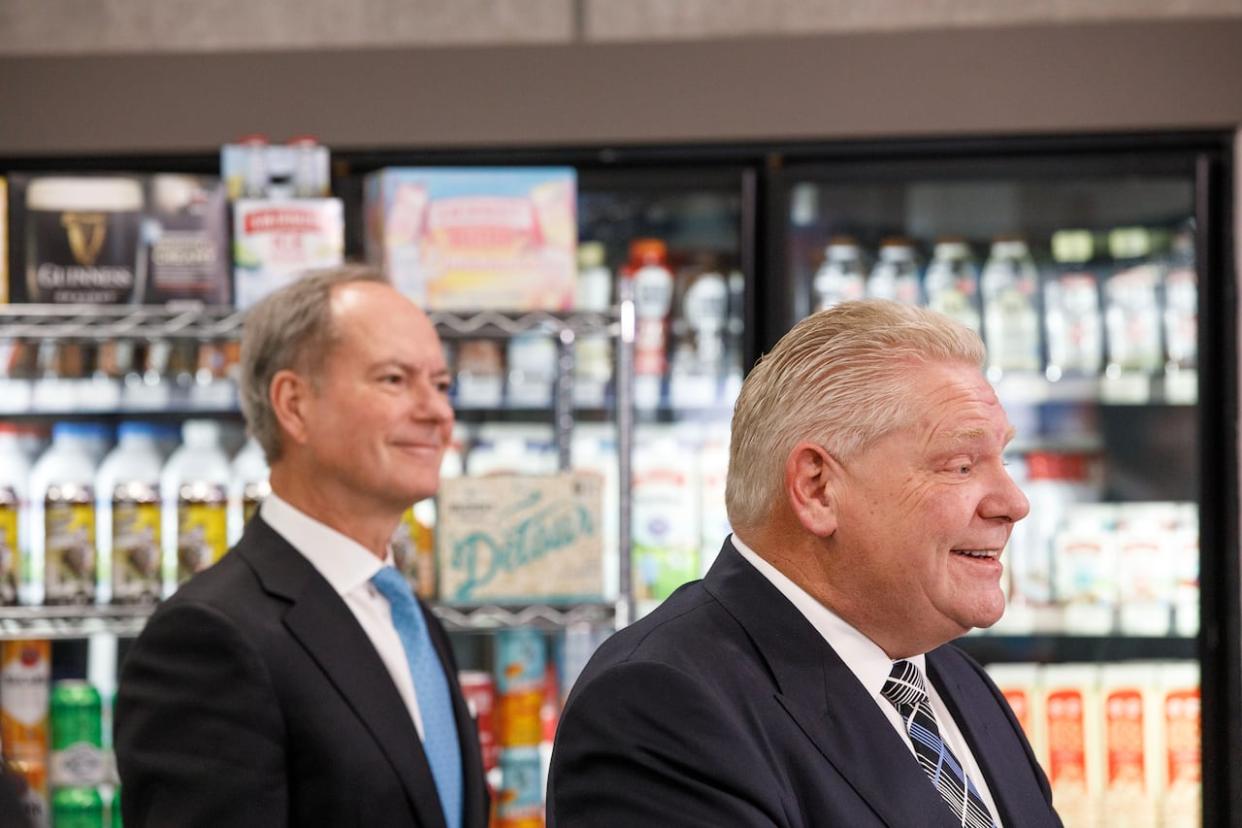Ford digs in on booze sales expansion plan as LCBO strike drags on

Ontario Premier Doug Ford says his government will move forward with further opening the alcohol retail market in the province, despite demands from the union representing striking LCBO workers to reconsider parts of the plan.
"Rolling back from the plan that we have a clear mandate from the people to implement is out of the question," Ford said at a news conference Wednesday.
"The status quo right now favours big business over small businesses, and I don't think that's fair."
Beginning later this summer, retailers like grocery, big box and convenience stores will be able to sell beer, wine, cider and ready-to-drink cocktails such as hard seltzers.
The Ontario Public Service Employees Union (OPSEU) says that Ford's plan could pose an existential threat to the LCBO as a retailer and result in mass layoffs.
Some 9,000 LCBO workers represented by the union walked off the job last Friday after negotiations for a new collective agreement fell apart. The LCBO then shuttered its more than 650 stores across the province for at least two weeks.
OPSEU has taken particular issue with the LCBO losing exclusive rights to retail ready-to-drink spirit beverages. It has demanded the government walk back that part of the expansion or ensure the LCBO is made whole for the lost revenue. The union has also asked for guarantees that no jobs will be lost at the 97-year-old Crown corporation.
Ford made it clear Wednesday he has no intention of revising any part of the expansion plan. He said the union needs to drop its demands around canned spirit drinks for bargaining to resume.
The LCBO said its last offer to the union included a seven per cent wage increase over three years and the conversion of 400 casual jobs into permanent, full-time roles.
"If they want to negotiate over [ready-to-drink beverages], the deal's off. I'm gonna repeat that: that ship has sailed," he said, adding that he has heard from LCBO workers their priorities are about wages, benefits and job security.
The LCBO currently generates a roughly $2.5 billion annual revenue dividend for the province, a substantial portion of which is spent on key public services like health care and education. Ready-to-drink cocktails account for about nine per cent of all yearly sales from the LCBO.
Meanwhile, Ford and his MPPs have attempted to paint the ongoing strike as opportunity for consumers to seek out local, Ontario-made products like craft beer and ciders.
On Monday, Ford rolled out an interactive online map to help consumers find booze retailers in their area.
This week, OPSEU members have been picketing at LCBO distribution warehouses in an attempt to disrupt deliveries of online alcohol sales.


